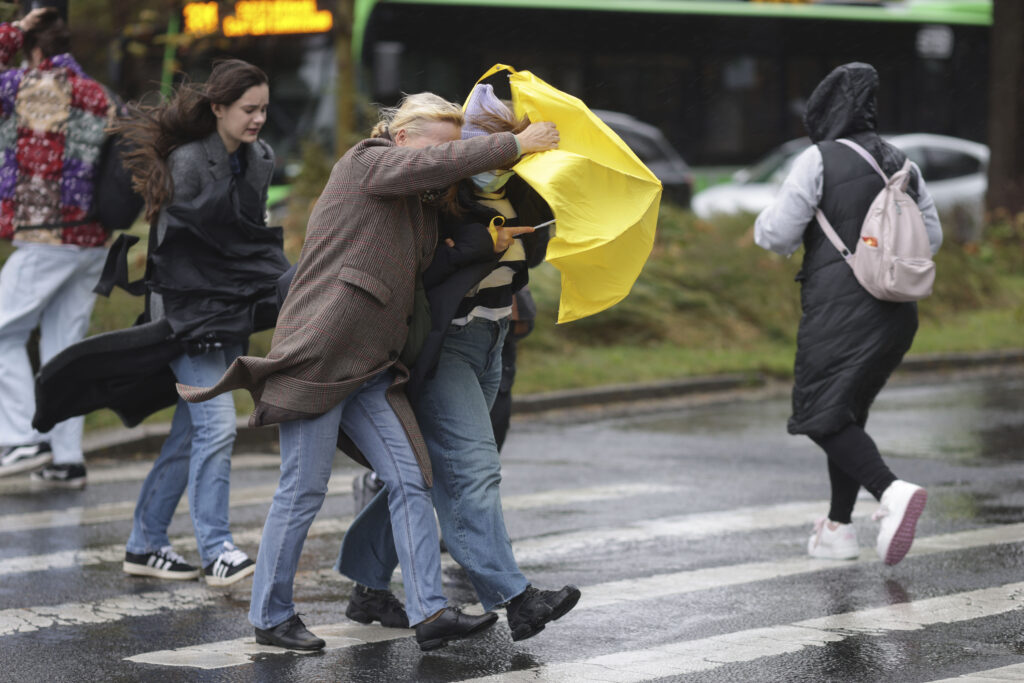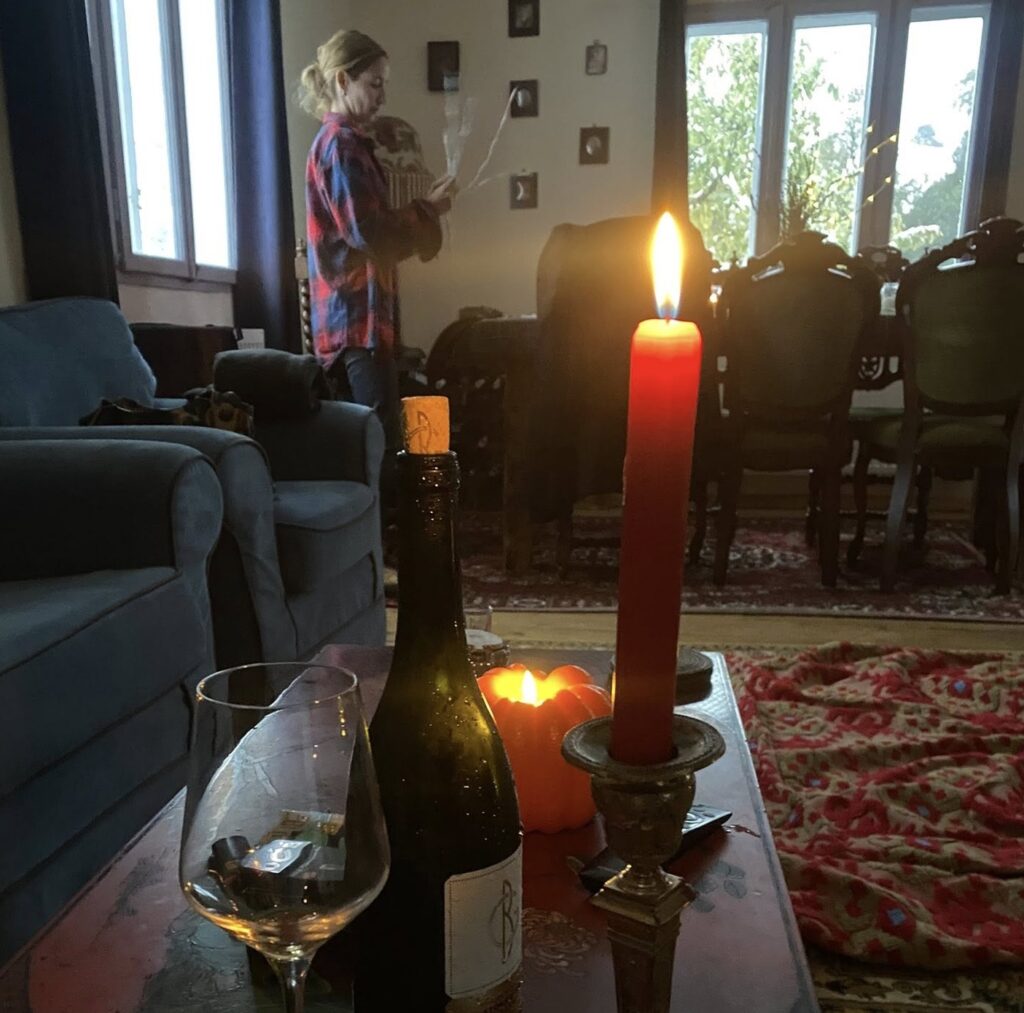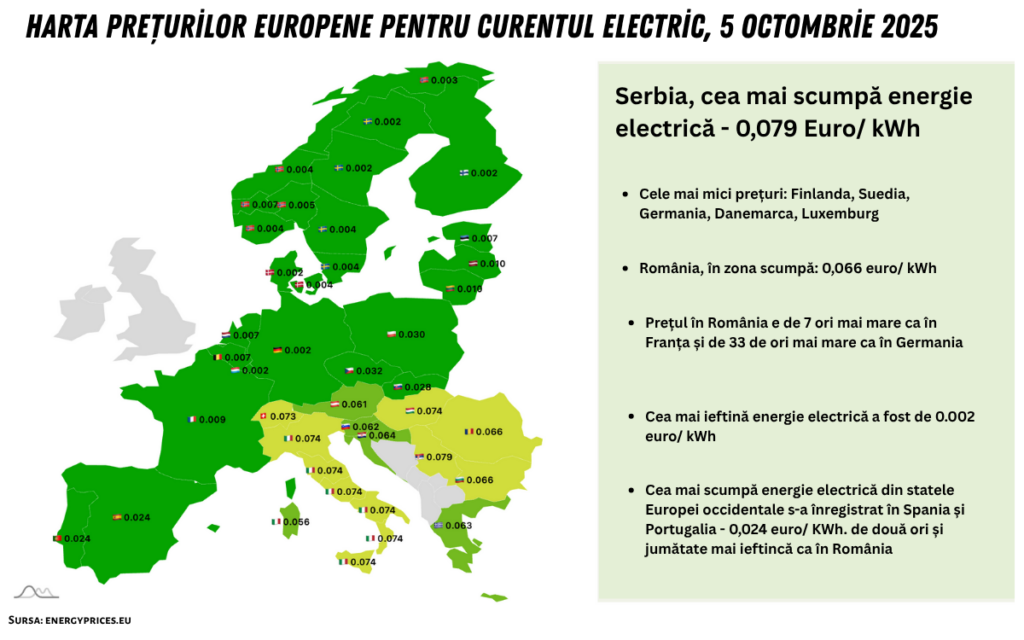In Romania, the beginning of October was rainy, with low temperatures and snow in the mountains, an unusually cold weather for the early autumn.
In Bucharest, there were three days of intense precipitation, and in several areas of the city, water flooded the streets and sidewalks, once again highlighting how deficient the sewerage works are and how significant the city’s infrastructure problems are.
Moreover, in many mountain localities, it snowed, with temperatures dropping below zero degrees.
Charles Ottley is the most famous Briton who fell in love with Romania after King Charles. He lives with his wife in the commune of Șirlea, in Brașov County, being an honorary citizen of the town with the same name.
The British journalist has extensively promoted our country worldwide, being extremely popular on social networks, and has also produced a series of documentaries, broadcasted by Netflix, "Flavours of Romania," starting from 2017.

The three seasons so far, along with the dissemination of images, video clips, and content from documentaries on social networks, have brought Ottley global recognition and great popularity in the country.
With his friendly figure, enthusiasm, and passion rarely found in this part of the world, the British journalist has significantly contributed to creating the image that Romania has a lot to offer to those who visit, a series of hidden treasures concerning landscapes, hiking, and a rich gastronomic offer.
What Are We Paying For?
The situation dramatically changed last week when Charles Ottley was forced to survive three days in cold and darkness, as his locality was affected by an extensive power outage, most likely caused by the cold weather and heavy rainfall.
"Incredible! We have been without electricity for nearly three days. After it briefly returned, yesterday... it went out again. We still have no power this morning. We can't wash, can't flush the toilet... and all the food in the freezer has thawed," the Briton wrote on his Facebook page on October 4, 2025.
His post gathered around 2,400 reactions, over 380 comments, and more than 140 shares. However, it wasn't the fact of being left without power that caused his dissatisfaction, but something else: "I called Electrica again this morning, and after another half-hour of waiting on the phone (your call is important to us), we were informed that the problem was solved last night.
Except it wasn't. And, as far as I know, the whole village is without power. It's not right; there are elderly people shivering in their homes without heating, while it's heavily snowing outside. What are we paying for? I know it snowed heavily and branches fell, but why didn't they cut the branches near the cables during the summer? Are they doing that, or are they waiting for another power outage before solving the problem?" wrote journalist Charles Ottley in his message, expressing his anger in a well-mannered English, maintaining composure no matter how challenging the situation he is in.

"In the UK, for such a level of service, hefty fines would be imposed. It's not about us; we are fine, except that we lost a freezer full of food, but there are many elderly people in the countryside, and not all of them have wood stoves. How should they keep warm for days when it's minus 1 degree outside?" wondered the Briton who moved to Romania to live in a dream area.
Silent About Darkness
I wouldn't have written about Charles Ottley's adventure in his beloved adopted country if, during the same period, in the neighborhood where I live in Bucharest, the power hadn't been cut off for 16 hours, if I hadn't received the same response from the company Electric Networks S.A. after managing to reach a person from the call center at 5:30 in the morning, after 12 hours, who gave me the same response, stating that the issue had been resolved.
I wouldn't have written about Charles Ottley's adventure if I hadn't analyzed the website rețeleelectrice.ro, estimating that following the rains and winds in Bucharest recorded last week, around a million people were affected by power outages lasting between one hour and 20 hours.
There was no communication at the level of the Bucharest administration regarding this matter, nor at the level of the DSU (Department for Emergency Situations), and the city's mayors had disappeared from social networks, as they usually do when a problem affecting the safety, health, and quality of life of citizens arises.
In the area where I live, there have been power outages, on average, twice a year. Each time, I would call the number 021.9291, and after indicating the sector where I live, a recording of an operator would announce the faults in the area and provide an estimate of when the power would be restored.
Most of the time, that message was sufficient; we would learn that the respective company had identified the problem, was working to solve it, and had an intervention team that projected how long the repair would take.
Romania sold a megawatt to Hungary, for example, for 20 cents, for one leu per megawatt. And we have time intervals when, between 6 and 10 in the evening, Romania imports a megawatt of energy for 1,000, 2,000, even 2,500 lei. We had situations last year... an extreme, it was even 27,000 lei per megawatt, an extreme. But at the moment, we have these aberrations because we don't have enough energy. And Romania, from a net exporter of energy, has become an importer...
Bogdan Ivan, Minister of Energy
A Bridge Too Far
In the past two years, I have noticed that the communication service regarding electrical network issues, at least concerning Bucharest, has deteriorated.
At this moment, it's practically impossible to reach an operator in a crisis situation, and the messages regarding faults are unclear, incomplete, with relatively vague localization, or completely missing.
There is a distance of 200 kilometers between where I live and where Charles Ottley resides, and both of us received the same message that the issue had been resolved, even though it wasn't true.

Although on the website rețeleelectrice.ro there is a process of identification through a very long and complicated code, called POD, which must be carefully searched for on the bill like a detective, the procedure doesn't work when there is a power outage. No message appears anymore.
The entire communication system is designed to be difficult to access; an elderly person has no chance of registering on the site, finding the POD on the bill, and entering it in the faults section. However, even cumbersome as it is, in crisis situations and when overloaded, it doesn't work, everything getting blocked.
It's normal for power outages to occur from time to time, for malfunctions to happen, accidents to occur, and unfavorable weather to affect the distribution system, but it's not normal for there to be no communication for crisis situations, one that provides information, a time frame, and the severity of the problem for users who pay the highest electricity prices in Europe.

